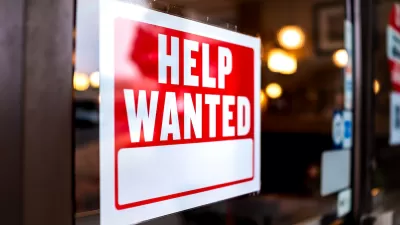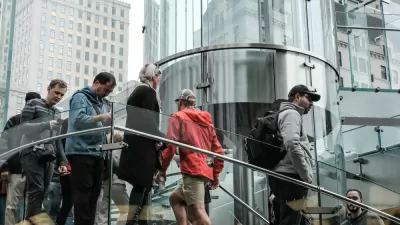Many students are understandably worried about getting a job once they graduate. The slow economy has made this more difficult and also changed some of the parameters in terms of approach and timing. For example, many employers are hesitant to make early commitments, delaying some phases of the job search. In this blog I outline a strategy for using the academic year to find a job or a summer internship using the North American academic calendar as a base.
Many
students are understandably worried about getting a job once they graduate. The
slow economy has made this more difficult and also changed some of the
parameters in terms of approach and timing. For example, many employers are
hesitant to make early commitments, delaying some phases of the job search. In
this blog I outline a strategy for using the academic year to find a job or a
summer internship using the North American academic calendar as a base.
Fall, from September to November, is
the time to prepare your approach.
-
Visit your university's Career Services office (they likely have a branch in your college) and find out about their services. Go to sessions on topics such as cover letter composition and networking. Use their coaching services to do mock interviews or have them critique your resume. Find out how they can link you to potential employers.
-
Go to lectures and conferences where practitioners are speaking and get a sense of the variety of opportunities available. At this stage don't be too picky-if you want to work in a firm consider government and nonprofit opportunities as well. If you are interested in economic development consider real estate, housing, and transportation as relevant areas.
The winter break in December and January
is a good time to do preliminary informational interviews.
-
An informational interview involves the student
or job seeker interviewing someone for general career advice, not to gain
employment. Such interviews are typically short-20-30 minutes-and focus on general
topics such as career paths and the outlook for new graduates
As a helpful New
York Times article points out: "The other person is doing you a favor, so
it should be about what's convenient for the interviewer, not you."-
To find people who will do such a favor you
might talk with Career Services. They may have list of alumni prepared to grant
such interviews as well as employers who have hired multiple graduates of your
program who may be wel-disposed toward current students.
This
information will help you focus your job search strategy during the early spring.
-
This is the time to look for upcoming opportunities
and start sending our resumes. In good economic times people are hired in the
early spring-this is less common now as employers wait. However, there are a
number of more formal government and internship programs that have early
deadlines and you don't want to miss them. - You can also set up additional informational
interviews for spring break.
In
the late spring my best advice is to
finish your degree.
-
If you have to choose between finishing your courses
and sending out another application, finish your courses. Employers are
justifiably worried about people without a degree in hand-with a degree in hand
you will be a much more attractive prospect. -
Of course, send out applications but don't do it
at the expense of completion. Many students put off completing their thesis
only to have it drag on for the summer or even for a year. Students either
forgo employment or if they get a job are distracted by the need to finish
academic work. -
Attending the national APA conference can be a
good idea if you want to relocate-it has a substantial job fair and inexpensive
registration rates for current students.
If
you don't have a job in May or June look for temporary positions. My tips on
gainful unemployment may be
useful.
This is my July blog,
rather late. I have a number of other blogs on finding a job including using the internet
wisely for job hunting, more on job hunting,thinking broadly
about job options,. and tips on staying gainfully unemployed
if you can't. There is also information on internships.

Manufactured Crisis: Losing the Nation’s Largest Source of Unsubsidized Affordable Housing
Manufactured housing communities have long been an affordable housing option for millions of people living in the U.S., but that affordability is disappearing rapidly. How did we get here?

Americans May Be Stuck — But Why?
Americans are moving a lot less than they once did, and that is a problem. While Yoni Applebaum, in his highly-publicized article Stuck, gets the reasons badly wrong, it's still important to ask: why are we moving so much less than before?

Using Old Oil and Gas Wells for Green Energy Storage
Penn State researchers have found that repurposing abandoned oil and gas wells for geothermal-assisted compressed-air energy storage can boost efficiency, reduce environmental risks, and support clean energy and job transitions.

Minneapolis Bans Rent-Setting Software
Four cities have enacted restrictions on algorithmic software that can inflate rent costs.

Oakland to Add 244 New EV Chargers
Oakland plans to launch its new charging network at eight locations by the end of 2025.

Jane Goodall Inspires with Message of Hope, Resilience, and Environmental Action
Speaking in Pasadena, Jane Goodall offered a hopeful and inspirational message, urging global compassion, environmental responsibility, and the power of individual action to shape a better future.
Urban Design for Planners 1: Software Tools
This six-course series explores essential urban design concepts using open source software and equips planners with the tools they need to participate fully in the urban design process.
Planning for Universal Design
Learn the tools for implementing Universal Design in planning regulations.
Heyer Gruel & Associates PA
City of Moreno Valley
Institute for Housing and Urban Development Studies (IHS)
City of Grandview
Harvard GSD Executive Education
Salt Lake City
NYU Wagner Graduate School of Public Service
City of Cambridge, Maryland






























